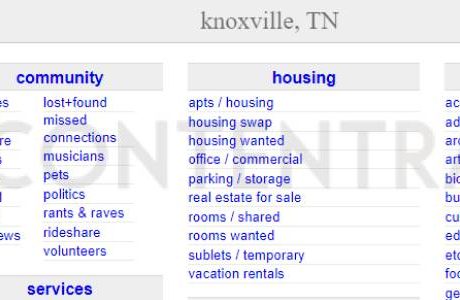Changes are exciting, but they also fill us with doubts.
Do you know an old English proverb, “better the devil you know than the one you don’t know”? Many will argue with it, as knowing any bad information on anything is more of a repulsive factor than a reassuring one, but still, going into a new work environment is scary.
What if the reality is different from what you’ve been told in a job interview? Does logic drive your decisions, or are you just following your emotions? Will your life improve after accepting the offer?
Changing jobs is stressful enough for any employee, especially if it is done more because of the external circumstances, but it may sometimes provoke regretful thoughts after getting to work.
This happens mostly because the hiring managers often describe the work environment better than it really is to create fake impressions and help the candidate ‘swallow the bait.’ Do you want to see the company as it is and be able to detect the so-called ‘red flags’ from the very beginning?
If your answer is ‘yes,’ this article is just what you need!
8 Prime Reasons For Job interview Red Flags

1. Inaccuracy and hesitation
Let’s start from the most logical part: we all seek clear and honest answers while asking about the corporate values and important job conditions. If the hiring manager tries to avoid the direct answer to your questions, gets defensive, stammers, or even hesitates, it might be a sign that something is fishy
2. No consistency between the interviewers
The best way to detect red flags in any recruitment process is to ask different employees the same questions. During your job search, you may be involved in a multi-leveled interview process, so this is the best way to double-check the facts the recruiters told you.
No matter who you are speaking with, whether it is a top manager or a regular employee, asking similar questions at meetings with them is a great way to check if the answers coincide.
If the main point of all the answers stays the same, but with different wording and perspective, it’s even better, as it helps to build a complete picture of certain aspects of the company. But you have to be suspicious if the answers cardinally differentiate from one or the other or are directly contradictory.
For example, the recruiter says they are seeking someone who could integrate a words to pages converter tool like this into a corporate site. Still, the team lead mentions that you should also create it from scratch, run all the tests yourself and integrate it.
It seems to be a far bigger job than you expected, right? Or just the lack of understanding and communication between employees.
3. Completely altered information from what you saw in the job description
If you find out that the conditions and your functions as an employee are different from what you saw in a job description before sending a CV, it is also a good indicator of something being wrong in the company.
Sometimes the hiring team tends to embellish the real work conditions to attract more specialists. Still, if the interview points out that the real expectations differ from the description, it is confusing and shows the company’s lack of professionalism. Who knows, maybe the salary here is also not that high, and the collective turns out to be problematic.
4. The selection progress takes an eternity
No matter the reason, slow and time-consuming selection processes are signs of faulty organization. If the final decision requires too much time or the number of job interviews knows no end, you might have a thought or two about the adequacy of the company’s scheduling or requirements.
A healthy recruitment process should never take longer than a few months. 4-5 interview sessions are more than enough to learn about the candidate’s skills and helpful personality traits, but exceptions also happen.
You Consider Going Through Some High Paying Energy Jobs We’ve Sorted.

5. Constant rescheduling of the meetings
Let’s get things straight: we are no robots, and changing plans is fine in some serious unplanned circumstances. Having a rescheduled job interview is fine, but it gets really suspicious if the recruiter changes the date several times in a row.
Accepting an offer from a company with a poor organization may lead to neglecting a new employee’s time and needs further on. It is way better to spend more time searching for a more organized team and getting all the necessary work-life balance.
6. Poor or toxic internal relationship
If some of the interviews in the selection process involve people from different departments, observing their interactions with each other may be helpful to see the overall atmosphere in the company.
Any signs of criticism, arguments, repulsive non-verbal language, or out-of-place cruel remarks may be a sign of tension or toxicity between colleagues, so if you value friendliness and positivity, it may not be the collective you are looking for.
7. Any signs of discriminative behavior
These are the easiest to detect. If you detect unnecessary, discriminatory questions or mentions of sensitive topics like religion, gender identity, race, etc., it shows that discrimination is regular for this company.
It is not only offensive for you as a specialist but may also be uncomfortable for you to survive in a collective like this. Remember: you spend most of your adult life at work, so it must not harm your psychological well-being, even with a high salary rate offered.
8. Your personal feelings and comfort
Professional Job interviews involve a conversation between any amount of people where they try to know more about each other and the environment that surrounds them through both verbal and non-verbal signs.
Suppose you feel uncomfortable in the process for whatever reason (it may be the recruiter’s questions, gestures or personality, the room you are in, future work conditions, or even a reason you haven’t figured out yourself). In that case, it is also a legit factor for you to move on and find yourself in a more appealing position.
Of course, if some of you have had a rough day and could not connect or have a decent conversation with the recruitment team or any other employee once, it is not the reason to cross the company out of the list. Still, if you feel out of place all the time, you have the right to move on and look for professional happiness elsewhere.
Additionals:






















